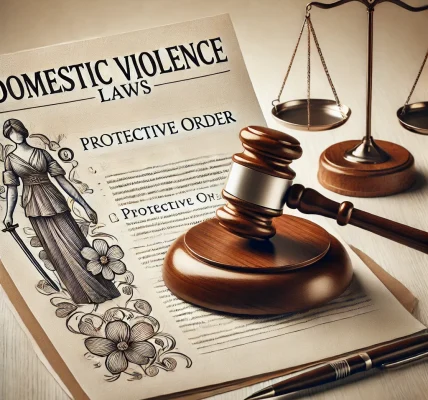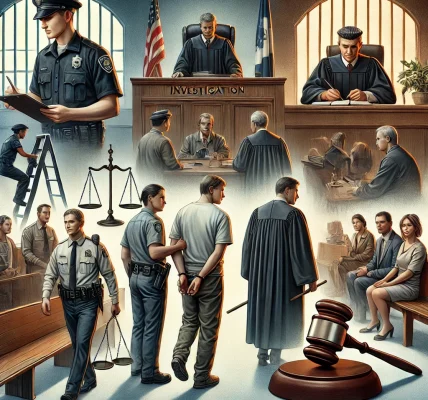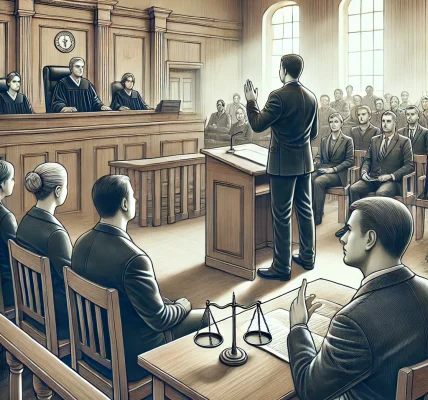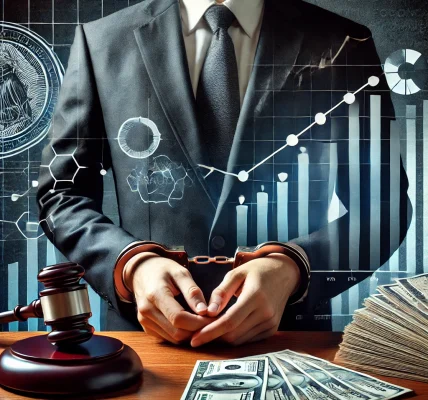When facing criminal charges, the importance of a skilled criminal defense lawyer cannot be overstated. Whether you are accused of a misdemeanor or a serious felony, having legal representation ensures that your rights are protected, and you receive a fair trial.
This article explores the role of a criminal defense lawyer, when you should hire one, and why having legal counsel is essential to navigating the criminal justice system.
What is a Criminal Defense Lawyer?
A criminal defense lawyer is a legal professional who specializes in defending individuals and organizations accused of committing crimes. Their primary role is to represent, advise, and advocate for their clients throughout the legal process.
Key Responsibilities of a Criminal Defense Lawyer
- Legal Representation – Acting as the legal representative for the defendant in court.
- Case Analysis – Investigating the case, gathering evidence, and identifying weaknesses in the prosecution’s argument.
- Plea Bargaining – Negotiating with prosecutors for reduced charges or penalties.
- Legal Advice – Guiding clients on the best course of action based on legal precedents.
- Court Representation – Arguing cases in court and presenting a strong defense.
When Should You Hire a Criminal Defense Lawyer?
Many people assume they only need a lawyer if they are guilty, but legal representation is crucial at every stage of a criminal case. Here’s when you should seek a criminal defense attorney:
1. Upon Arrest
- If you are arrested, you have the right to remain silent and should immediately request a lawyer.
- Anything you say to law enforcement can be used against you, making legal representation critical from the beginning.
2. During Police Interrogation
- Police may attempt to get a confession or statements that could be incriminating.
- A lawyer ensures that you do not unintentionally say something harmful.
3. When Charged with a Crime
- If you are formally charged, you should hire a lawyer to begin building your defense.
- They can challenge the evidence and identify procedural errors.
4. Before Accepting a Plea Bargain
- Prosecutors may offer plea deals that seem favorable but could have long-term consequences.
- A lawyer can negotiate a better deal or advise you whether to accept it.
5. During Trial Proceedings
- If your case goes to trial, you need an experienced attorney to argue on your behalf.
- They will cross-examine witnesses, present evidence, and ensure your legal rights are upheld.
Why You Need a Criminal Defense Lawyer
Hiring a criminal defense lawyer provides several key benefits:
1. Protection of Your Legal Rights
- Ensures you are treated fairly and that law enforcement follows proper procedures.
- Prevents unlawful searches, forced confessions, and wrongful charges.
2. Expertise in Criminal Law
- Criminal law is complex and requires an in-depth understanding of statutes and precedents.
- A skilled lawyer knows how to interpret laws and apply them to your case.
3. Strong Defense Strategies
- Lawyers analyze evidence, witness statements, and police procedures to build a solid defense.
- Possible defense strategies include:
- Proving lack of intent
- Challenging unreliable witness testimony
- Highlighting procedural errors
4. Negotiation for Lesser Charges
- Prosecutors often aim for maximum penalties, but a defense attorney can negotiate reduced charges.
- This may lead to lesser sentences, alternative penalties, or even case dismissal.
5. Reducing Sentencing and Penalties
- If convicted, a lawyer can argue for lighter sentencing.
- Alternatives to jail time may include community service, probation, or rehabilitation programs.
Types of Criminal Defense Lawyers
Criminal defense lawyers specialize in different areas of law, including:
1. Public Defenders
- Court-appointed attorneys for individuals who cannot afford private lawyers.
- Often overworked, but still provide legal representation.
2. Private Criminal Defense Lawyers
- Hired by individuals for personalized legal defense.
- More resources for investigation, expert witnesses, and trial preparation.
3. Specialized Defense Attorneys
- Focus on specific crimes like white-collar crime, drug offenses, or violent crimes.
- Have deep expertise in niche areas of criminal law.
How to Choose the Right Criminal Defense Lawyer
When selecting a lawyer, consider the following:
1. Experience and Track Record
- Look for a lawyer with experience handling cases similar to yours.
- Check their success rate in trials and plea deals.
2. Reputation and Reviews
- Research client testimonials and reviews.
- Ask for recommendations from trusted sources.
3. Communication and Availability
- Ensure the lawyer is responsive and provides clear legal guidance.
- A good lawyer should explain legal terms in simple language.
4. Fees and Payment Plans
- Discuss legal fees upfront and understand the cost structure.
- Some lawyers offer payment plans or flat rates for legal services.
Common Misconceptions About Criminal Defense Lawyers
1. “Only Guilty People Need Lawyers”
- Innocent individuals are often wrongly accused, and a lawyer ensures justice is served.
2. “I Can Represent Myself”
- Self-representation rarely succeeds due to lack of legal knowledge and experience.
3. “Public Defenders Are Not Effective”
- While overworked, many public defenders are highly skilled and dedicated to their cases.
Conclusion
A criminal defense lawyer plays a vital role in protecting the accused from unjust prosecution, excessive penalties, and wrongful convictions. Whether you are facing minor or serious charges, having an experienced attorney can make a significant difference in the outcome of your case.




